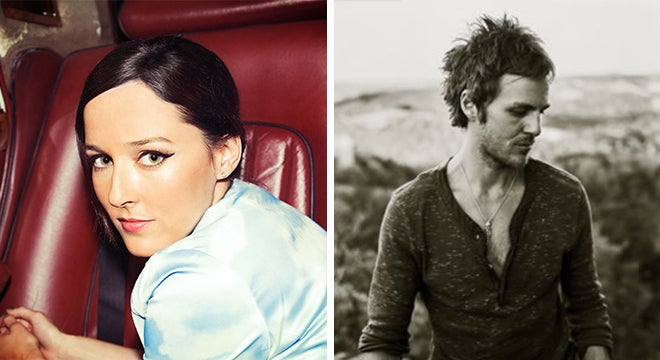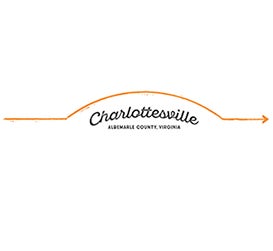
106.1 The Corner 8th Birthday Celebration ft. Meiko & Charlie Mars
106.1 The Corner 8th Birthday Celebration ft. Meiko & Charlie Mars
FREE SHOW
About Meiko: The last time we heard from singer-songwriter Meiko, she was touring the world in support of 2012's The Bright Side, a buoyant, optimistic record awash in the early phases of love. TV shows and commercials across the globe featured the album's songs, and "Stuck on You" even became a No. 1 radio hit in Japan. Years after launching her songwriting career in the coffeehouses of Los Angeles, Meiko had officially found international recognition.
Her secret affinity for penning unsent letters to the various souls who have penetrated her life inspired her third studio album (and second for Concord) Dear You, a decidedly deeper, darker record about the things that happen once a relationship's honeymoon phase crashes to a halt. There's heartbreak, betrayal, and longing, enveloped in 11 new songs that mix Meiko's voice — breathy and intimate — with electronic folk-pop, drum loops, acoustic guitars, keyboards and unforgettable melodies.
"I like writing letters: love letters, pissed-off letters, breakup letters," she explains. "Call me passive-aggressive, but it's easier to write someone a letter than actually confront them in person. I rarely wind up mailing those letters, though. Instead, I turn them into songs. Dear You is an album mostly filled with those unsent notes."
Meiko turned to producer Jimmy Messer, who also helmed a good chunk of The Bright Side, to help create Dear You’s sophisticated, stripped down sound bed. Together, the two recorded most of Meiko's songs without outside help, only turning to musicians like Don Heffington (Bob Dylan, Sheryl Crow) and the Grooveline Horns (Jason Mraz, Dave Matthews Band) for key cameos on a handful of tracks. The goal was to keep things simple, highlighting the album’s intimacy without adding too many bells and whistles. At Meiko's request, though, Messer did sprinkle some synthesizers and electronic percussion into the mix; drawing a bridge between Meiko's acoustic songwriting and her lifelong appreciation for electronic pioneers like Portishead.
"I'd play each song on my acoustic guitar," Meiko remembers, "and then Jimmy and I would build it from there. We'd figure out the right tempo, play around with beats and layer some instruments… We even added a reggaeton beat to ‘Sittin' Here,’ which was the result of me driving over to Jimmy's studio, getting caught in traffic, and flipping through songs on the Latin stations. Dear You was like our little art project."
Meiko's artistic ambitions date back to 2007, when she began landing shows at the Hotel Cafe, the unofficial headquarters of young, up-and-coming songwriters on the West Coast. Things moved quickly from there. She signed with MySpace Records, reissued her self-titled debut record in 2008, and scored a hit on Triple A radio with "Boys with Girlfriends." Pop, folk, and rock fans loved her; so did music supervisors, who placed Meiko's songs in episodes of Grey's Anatomy, One Tree Hill, and other prime-time TV shows. After signing with Concord Records in 2011, she released The Bright Side, which climbed to No. 1 on the iTunes Singer/Songwriter Albums chart. Meiko hit the road again, selling out concerts from Los Angeles to Tokyo.
Now, following seven years of writing, performing, traveling and learning, Meiko is ready to release her most accomplished album to date. Taking hold of her secret letters, Meiko turns them into sweet ‘n sour alt-pop ("Be Mine"), electronic lullabies ("The Cloud Song"), minimalist indie rock ("Deep Sweat"), and digital folk ("Wake Up"). Dear You is a breakup album that's easy to fall in love with.
About Charlie Mars: "I know people think, 'Oh great, another guy with an acoustic guitar,'" says Charlie Mars. "What I really want is to say to them, 'Not so quick. Just one minute. That's not what this is.'"
Charlie Mars has been a journeyman artist with all the ups and downs that entails, from major label releases and high profile gigs opening for the likes of REM, KT Tunstall, Citizen Cope, Steve Earle, among others, from uncertainty to redemption. Now, with the extraordinary new Blackberry Light, the Mississippi-based troubadour builds upon the distinctive musical approach first mined on his 2009 breakthrough Like A Bird, Like A Plane, employing supple grooves and ambient Daniel Lanois-inspired production to enhance the elemental force of his classic songwriting influenced by the likes of Bob Marley, Bill Withers and Dire Straits. From the dreamlike, "Nothing But The Rain," to the shimmering "Picture of an Island," the album sees Mars delving deep within to offer insight and a path to self awareness and ultimately transcendence via a gracefully beatific distillation of folk, rock, and smooth acoustic soul.
"This music takes my mind to a place that allows me to see more clearly where I'm falling short," Mars says. "It takes my mind to a reflective place. It makes me sentimental about my past, my present, my future. It has a way of humanizing me and helping me shed some of the things that get in my way."
Currently residing in Oxford, Mississippi, Mars was at a professional standstill before Like A Bird, Like A Plane. With "no manager, no agent, no band and no money," he doggedly developed a sonic style uniquely his own, a sound informed less by traditional rock than by sinewy and soulful rhythms that seemed to bubble up from within his soul.
"We stumbled upon this percussive, atmospheric tone that, as far as I'm concerned, was different from anything else out there," Mars says. "I thought, 'This is my sound. This is what separates me from the things that I'm hearing elsewhere and I want to explore that further.'"
Mars kickstarted his second act by spending much of the next two years on the road; growing an increasingly fervent following while slowly compiling a sheaf of new songs.
Recording officially got underway in August 2011 at Austin's Texas Treefort Studios, with Mars once again accompanied by many of his cohorts, including producer Billy Harvey (Bob Schneider), keyboardist John Ginty (Santana, Citizen Cope), bassists George Reiff (Ian Moore, Steve Poltz) and Dave Monzie (Fiona Apple), and drummers J.J. Johnson (John Mayer, Tedeschi Trucks Band) and Dony Wynn (Robert Plant, Robert Palmer).
That stripped down framework comprises a stark and cinematic sound inspired in part by producer Daniel Lanois' famed collaborations with Bob Dylan, Ron Sexsmith, and Emmylou Harris. With its sparse instrumentation and focus on transcendent grooves and ambient space, the minimalist approach serves to add maximum intensity to Mars' already powerful songwriting.
"It's not just less is more," Mars says. "Less can be massive. When you find that special place of less, everything just opens up. Sometimes I'll think we're doing so little, we should do more, but then it's like, let's do less and see what happens."
Mars took a similarly modest tack towards the overall recording, looking to capture those perfect uncalculated moments where everything just clicks. "Back of the Room," written initially as part of an Esquire feature asking five songwriters to compose a tune incorporating the words "Somewhere in Mississippi,” was literally cut live as the band unwound from a long day's work, while the rollicking, funk-fueled "How I Roll" was truly born of spontaneous energy, its unabashedly wicked opening lines put down by Mars while Johnson was out on a brief appointment. Upon his return to the studio two hours later, the band jammed the track and recorded it straightaway.
"That was it," Mars says. "We never did it again."
Penned as a "counterbalance to some of the slower, more moodier songs" on the album, "How I Roll" sees Mars acknowledging his myriad demons, even celebrating their essential place in his complete being.
"Part of what I've gone through is acknowledging that I have a darker self," he says, "and I have to work diligently to try and improve myself so that I can stay out of that. At some point, I came to the realization that that darker self is going to win sometimes and I'm a little tired of apologizing for it. It's part of the whole, I don't have to carve that part of myself out and deny it."
Like any songwriter worth his salt, Mars employs his art as a channel towards personal discovery, candidly exploring all the human limitations, from pride and fear to cynicism self-doubt, that stand in the way of his attaining true happiness.
"The desire for connection and my terror in the face of it," he says. "That's what the album is about."
To get there, songs like "Great Wall of China" or the title track take lyrical cues from such literary heroes as Haruki Murakami, Cormac McCarthy, Walker Percy, and Denis Johnson, relying on spare language and abstract imagery to create vivid-to the bone revelations about universal life experience.
Upon the sessions' conclusion, Mars began aggressively pursuing one of his dream collaborators, legendary producer/engineer/mixer Tchad Blake. The Grammy Award-winner, known for his distinctive work with such artists as Elvis Costello, Richard Thompson, and Sheryl Crow, ultimately agreed and helped give Blackberry Light much of its uniquely spacious warmth.
"If there is a leap from the last record to this one, Tchad played a huge part in it, Mars says. He's an artist. He takes something and infuses it with his artistry and it becomes something else. He's the real deal."
The same can be said of Charlie Mars. Imbued with jazzy warmth, simmering dynamics, and uncommon use of space and intensity, Blackberry Light presents a gifted writer and musician at his confident and creative peak, a milestone work in what has proven to be a most extraordinary artistic evolution.
Read More
Design VisualSHOWINGS
This event has already occurred.
The Southern
-
Thu, May 1, 2025
Maya de Vitry (TRIO)
-
Fri, May 2, 2025
Short n’ Sweet: A Sabrina Carpenter Drag & Dance Party (16+)
-
Sat, May 3, 2025
No Stupid Questions
-
Sun, May 4, 2025
Songwriter Showcase Hosted by Theocles Herrin







